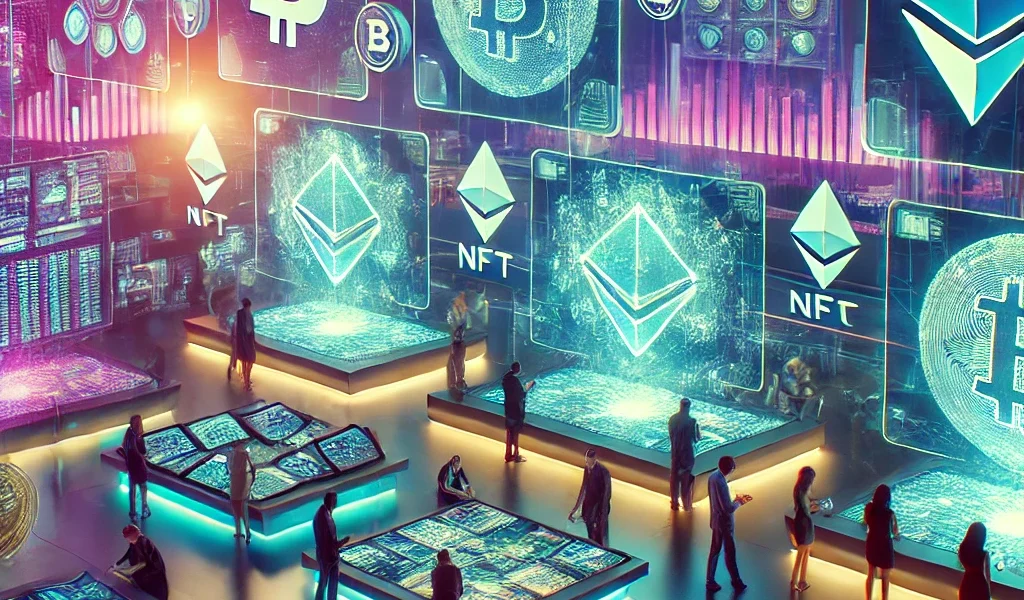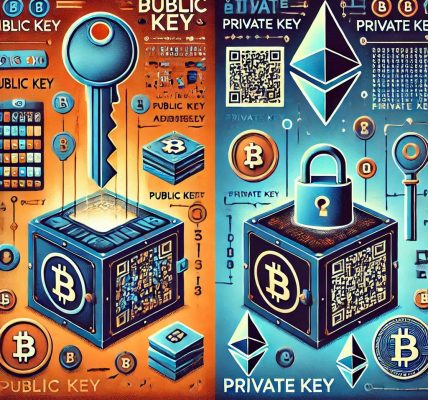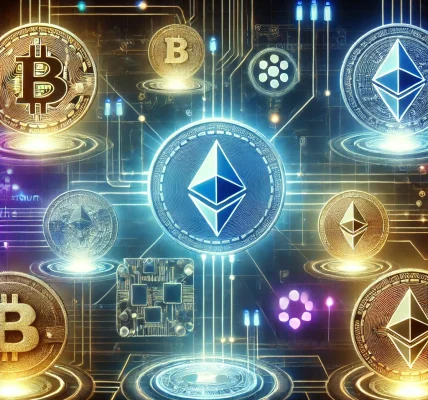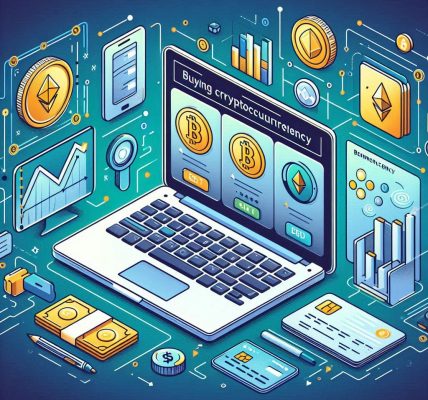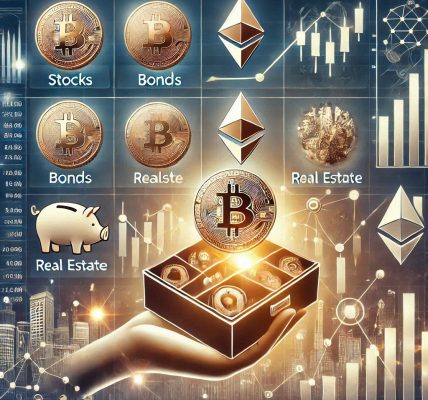Introduction
Non-Fungible Tokens (NFTs) have revolutionized the digital asset landscape, offering unique ownership rights to art, collectibles, music, virtual real estate, and more. The demand for NFTs has surged, leading to the emergence of numerous NFT marketplaces where buyers and sellers can engage securely.
However, with the growing number of platforms, choosing the right marketplace that ensures safety, transparency, and reliability is crucial. In this comprehensive review, we will explore the best NFT marketplaces, their features, security measures, and how to buy and sell digital assets safely.
What Are NFT Marketplaces?
NFT marketplaces are online platforms that facilitate the buying, selling, and trading of NFTs. They function similarly to e-commerce websites but are specifically designed for digital assets using blockchain technology. These marketplaces provide users with a decentralized and secure environment to create, list, and purchase NFTs.
Key Features of NFT Marketplaces
- Blockchain Integration: Most platforms operate on Ethereum, Solana, Polygon, and Binance Smart Chain.
- Wallet Compatibility: Support for digital wallets like MetaMask, Trust Wallet, and Coinbase Wallet.
- Smart Contracts: Secure transactions through automated agreements.
- Royalties & Creator Earnings: Some platforms allow artists to earn royalties on secondary sales.
- Diverse NFT Categories: Art, music, gaming items, virtual land, and more.
- User Verification: Some platforms require KYC (Know Your Customer) verification for added security.
Top NFT Marketplaces to Buy and Sell Digital Assets
1. OpenSea (Best for Variety and Accessibility)
- Blockchain: Ethereum, Polygon, Solana
- Features:
- Largest NFT marketplace with diverse categories.
- No need for approval to list NFTs (peer-to-peer transactions).
- Supports multiple wallets and cryptocurrencies.
- Offers free minting (lazy minting) to reduce gas fees.
- Security: Implements smart contract verification, two-factor authentication, and fraud detection tools.
- Fees: 2.5% marketplace fee on sales.
2. Rarible (Best for Decentralization and Community Governance)
- Blockchain: Ethereum, Flow, Tezos, and Polygon
- Features:
- Decentralized marketplace with governance token ($RARI).
- Allows users to create and sell NFTs with customizable royalties.
- Community-driven decision-making.
- Security: Uses blockchain verification for authenticity.
- Fees: 2.5% transaction fee per sale.
3. SuperRare (Best for High-End Digital Art)
- Blockchain: Ethereum
- Features:
- Curated marketplace focused on exclusive, high-quality NFT art.
- Artists must be approved to list NFTs.
- Collectors can bid or buy instantly.
- Security: Strict verification process for artists.
- Fees: 3% transaction fee for buyers; 15% commission on primary sales.
4. Foundation (Best for Artist-Centric Auctions)
- Blockchain: Ethereum
- Features:
- Invite-only platform for artists.
- NFT auctions for fair pricing.
- Supports artist royalties.
- Security: Smart contract protection and identity verification.
- Fees: 5% transaction fee.
5. Binance NFT Marketplace (Best for Low Fees and Exchange Integration)
- Blockchain: Binance Smart Chain, Ethereum
- Features:
- Backed by Binance, a trusted crypto exchange.
- Lower transaction fees compared to Ethereum-based platforms.
- Supports gaming NFTs, art, and collectibles.
- Security: Uses Binance security measures (two-factor authentication, KYC verification).
- Fees: 1% transaction fee.
6. Nifty Gateway (Best for Credit Card Purchases & Exclusive Drops)
- Blockchain: Ethereum
- Features:
- Allows purchases with credit/debit cards (fiat payments).
- Hosts exclusive NFT drops from famous artists.
- Custodial wallet option for beginners.
- Security: Centralized security measures with account recovery options.
- Fees: 5% fee + $0.30 per secondary sale.
How to Buy NFTs Safely
- Choose a Trusted Marketplace: Select well-known platforms with strong security protocols.
- Use a Secure Crypto Wallet: MetaMask, Trust Wallet, or hardware wallets like Ledger.
- Enable Two-Factor Authentication (2FA): Add an extra layer of security to your account.
- Verify NFT Authenticity: Check smart contract details and previous sales history.
- Be Cautious of Scams: Avoid clicking on suspicious links or buying from unverified sellers.
- Understand Gas Fees: Transaction fees vary depending on blockchain congestion.
- Review Marketplace Terms: Understand the fee structure and policies before buying.
How to Sell NFTs Safely
- Mint Your NFT on a Reputable Platform: Choose platforms with strong artist support and fair fees.
- Set Appropriate Royalties: Earn commissions on secondary sales.
- Market Your NFT: Promote on social media and NFT communities.
- Avoid Phishing Attacks: Never share private keys or click on unknown links.
- Use Smart Contracts for Transparency: Ensure transactions are secure and verifiable.
Legal Considerations and Risks
- Intellectual Property Rights: Ensure you own the rights to the content you mint as NFTs.
- Regulatory Uncertainty: Some countries impose restrictions on NFTs and crypto transactions.
- Fraudulent Listings: Verify authenticity before purchasing.
- Tax Implications: NFT sales may be subject to taxation depending on your location.
- Marketplace Downtime: Platforms may experience technical issues or shutdowns.
Conclusion
NFT marketplaces provide an exciting opportunity to buy, sell, and trade digital assets securely. Platforms like OpenSea, Rarible, and Binance NFT cater to different needs, offering unique features for artists, collectors, and traders.
While NFTs present profitable opportunities, it’s essential to prioritize security, conduct thorough research, and comply with legal guidelines to avoid potential risks.
As the NFT ecosystem continues to evolve, choosing the right marketplace and following best practices will ensure a safe and seamless experience in the digital asset world.
Disclaimer: This article is for informational purposes only and does not constitute financial, legal, or investment advice. Always conduct your own research before engaging in NFT transactions.
